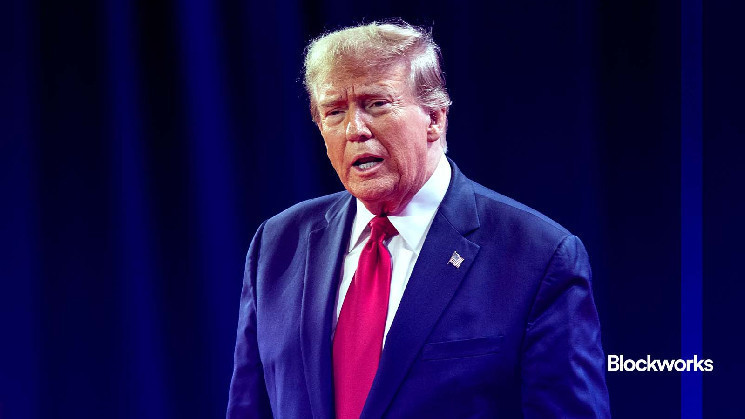Crypto mergers and acquisitions expected to spike under second Trump presidency

Former president Donald Trump is set to return to the White House in January after winning the election on Tuesday. During the campaign, Trump made several promises to the crypto community, one of which was to fire the U.S. Securities and Exchange Commission (SEC) chairperson Gary Gensler on the first day of his presidency.
Around six merger advisers and venture capitalists believe Trump will follow through on his promise to axe Gensler, who has used regulation through enforcement for years. Experts also believe that Trump could pave the way for more favorable crypto regulations.
In light of these forthcoming changes, merger advisers and venture capitalists told Bloomberg that they expect crypto merger and acquisition deals to pick up pace next year.
Casper Johansen, who heads The Spartan Group’s digital assets advisory business, said:
“With Trump in the White House, we expect 2025 to be a much stronger year for dealmaking”
According to Dragonfly Capital Managing Partner Haseeb Qureshi, Trump’s victory and the change in SEC leadership will ease the fears of deals being blocked or business channels being declared illegal or legal action from the SEC.
Some investment bankers focused on digital assets said that they expect many CEOs to use takeovers to speed up expansion plans under the second Trump presidency.
Some crypto firms that have signaled plans for deals include brokerage FalconX and Tether, which operates the largest stablecoin. In June, Tether said it expected to invest $1 billion in deals over the next 12 months.
There’s also Stripe Inc., a fintech firm worth around $70 billion, which announced plans last month to acquire stablecoin startup Bridge for around $1.1 billion.
Some hurdles will remain
The uncertainty of U.S. regulations and the SEC were not the only challenges in executing merger or acquisition deals. A key reason deals fail is because buyers and sellers cannot agree on the valuations of the companies.
Most crypto companies raised funding during the bull run that ended in 2022. This means that their last funding valuations are far above the current market. If buyers and sellers cannot come to an agreement, the deals fall through.
However, Qureshi said:
“All things considered, I expect the next four years to be much more favorable than the last four.”





 Bitcoin
Bitcoin  Ethereum
Ethereum  Tether
Tether  Dogecoin
Dogecoin  USDC
USDC  Cardano
Cardano  TRON
TRON  Bitcoin Cash
Bitcoin Cash  Chainlink
Chainlink  LEO Token
LEO Token  Litecoin
Litecoin  Cronos
Cronos  Stellar
Stellar  Ethereum Classic
Ethereum Classic  Dai
Dai  Stacks
Stacks  Monero
Monero  OKB
OKB  Hedera
Hedera  Cosmos Hub
Cosmos Hub  Theta Network
Theta Network  KuCoin
KuCoin  Maker
Maker  Gate
Gate  Algorand
Algorand  Polygon
Polygon  EOS
EOS  NEO
NEO  Tezos
Tezos  Tether Gold
Tether Gold  Zcash
Zcash  Bitcoin Gold
Bitcoin Gold  Synthetix Network
Synthetix Network  IOTA
IOTA  TrueUSD
TrueUSD  Holo
Holo  Zilliqa
Zilliqa  Dash
Dash  0x Protocol
0x Protocol  Siacoin
Siacoin  Ravencoin
Ravencoin  Qtum
Qtum  Enjin Coin
Enjin Coin  Basic Attention
Basic Attention  Decred
Decred  Ontology
Ontology  NEM
NEM  Lisk
Lisk  Waves
Waves  DigiByte
DigiByte  Status
Status  Nano
Nano  Numeraire
Numeraire  Pax Dollar
Pax Dollar  Hive
Hive  Steem
Steem  Huobi
Huobi  BUSD
BUSD  OMG Network
OMG Network  Ren
Ren  Bitcoin Diamond
Bitcoin Diamond  Bytom
Bytom  Kyber Network Crystal Legacy
Kyber Network Crystal Legacy  Augur
Augur  HUSD
HUSD